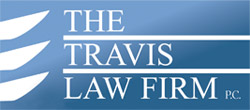Because it is illegal to drink or purchase alcohol under the age of 21, many teenagers and young adults attempt to find a way to get around the law. They may have older friends or family members purchase alcohol for them, or they purchase fake ID cards from companies or individuals. A fake ID gets them in bars and clubs where they aren’t allowed. Fake IDs give them the ability to purchase alcohol in stores or a bar. However, experienced bartenders, cashiers, and bouncers are getting better at spotting fake IDs, even high-quality fake IDs. Police officers are extremely good at spotting a fake ID.
Being Charged With Possessing A Fake ID
What many of these underage drinkers don’t understand is that having a fake ID is a separate criminal offense. If you use a fake ID in Pennsylvania, you can be charged with Possession of False Identification Card. It doesn’t matter whether you use the fake ID with a police officer or if someone reports you to the police for the use of false identification, you can be charged with a crime. For example, a cashier or a bouncer may recognize the card as a fake and hold the card while he contacts law enforcement. When the officer determine that the identification is not legitimate, he charges the person with possessing false identification.
A conviction of possessing false identification as a summary offense carries a sentence of up to 90 days in jail and a $300 fine. A conviction carries the possibility of suspension of driving privileges.
While a conviction of possession of false identification may not sound like a big deal, what many people don’t realize is that the charge can be filed under Pennsylvania’s Vehicle Code. Under the vehicle code, a fake ID is a first degree misdemeanor, the most severe misdemeanor charge. As a first degree misdemeanor, having the fake ID is a more serious charge than some drug possession charges.
Is Having A Fake ID A Big Deal?
Many college students use fake IDs to get into clubs or drink at bars where their older friends go to socialize. Underage drinkers assume that cashiers and others overlook a fake ID, even if they have suspicions. However, that is generally not the case because of the high penalties for a conviction of Furnishing Alcohol to a Minor. A conviction of furnishing alcohol to a minor carries a mandatory fine of $1,500. For second and subsequent offenses, the fine increase to $2,500. Bartenders, cashiers, waiters, waitresses, and others working with alcohol take this criminal charge very seriously. Most people who sell or serve alcohol report anyone who attempts to use a fake ID to purchase alcohol.
Don’t Risk Your Future
Many people don’t take underage drinking seriously. Carrying a fake ID is something teenagers, and college students do as a part of growing up. However, the law imposes stiff penalties for this type of behavior. Many prosecutors pursue these cases to the fullest extent of the law to discourage other minors from going down this same path.
Call An Edinboro Criminal Defense Attorney
If you are charged with Possession of False Identification or other alcohol-related charges, consult an Edinboro criminal defense attorney immediately. You need competent, experienced representation regardless of your guilt or innocence.
An experienced Edinboro criminal defense lawyer attempts to have your criminal charge dismissed to avoid a permanent criminal record that can have negative consequences for your future. A criminal record may prevent you from attending the college you want to attend, enter the profession of your choice, and interfere with your ability to lead your life however you desire. In the event your criminal charges aren’t dismissed, our Edinboro criminal defense attorney works with you to develop a defense strategy to obtain the best possible outcome given the facts in your case.
Contact The Travis Law Firm by calling (800) 401-2066 to schedule a free consultation with one of our Edinboro criminal attorneys. Don’t let a lapse in judgment ruin your future. Call our office today to speak with an attorney to discuss how we can help protect your right to a fair and just outcome in your criminal case.
